Two Major Events in Korea Compared to Nigeria
- byT.Sapphire 💙
- 1 year ago
- 0 Comments
- 5mins

We all know that while comparing Korea and Nigeria, we will definitely find some differences and even some similarities that include the ‘respect’ culture, filial piety, and a host of other similarities in both countries and cultures.
However, there are other things we can compare and contrast to one another in these cultures. Some of these things are events that are common to every part of the world, and in this piece, we are talking about two important events in the world, and the similarities and differences they share in both Korea and Nigeria. Are you ready? Let’s go.
The Wedding Culture
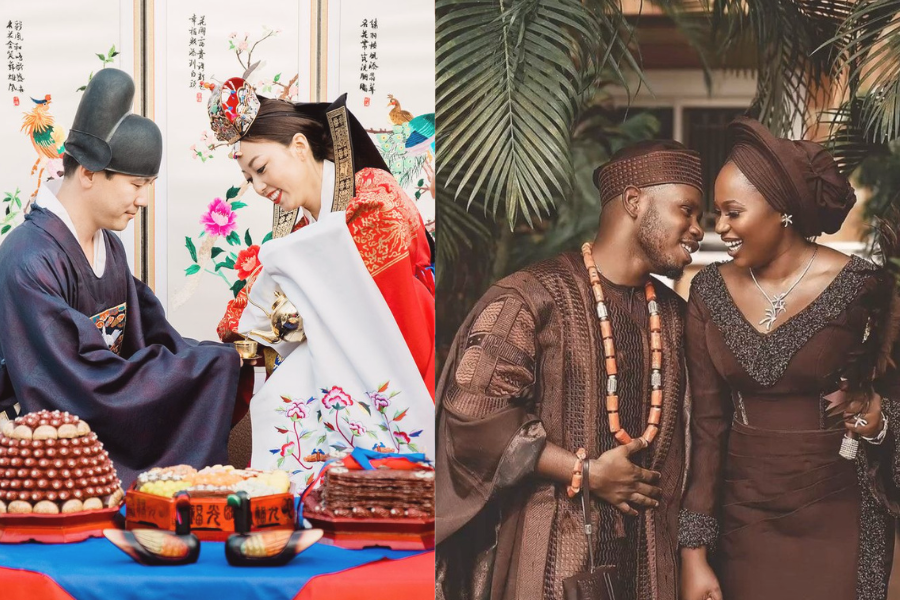
So the first event we are talking about here is the wedding event. It’s obvious that both Korea and Nigeria believe in dating resulting in marriage, and of course, they both believe in family and friends gracing the occasion with their presence and well wishes, however, there are some differences in their wedding culture. For instance, do you know as a Korean wedding guest, it is important that you pay for your meal? Yes, you heard right. Unless you literally pay for your food at the event or buy a meal ticket, you are automatically not entitled to food even if you are the bride’s or groom’s closest friend, unlike Nigeria, where strangers can get to attend a wedding and even eat as much as they want for free.
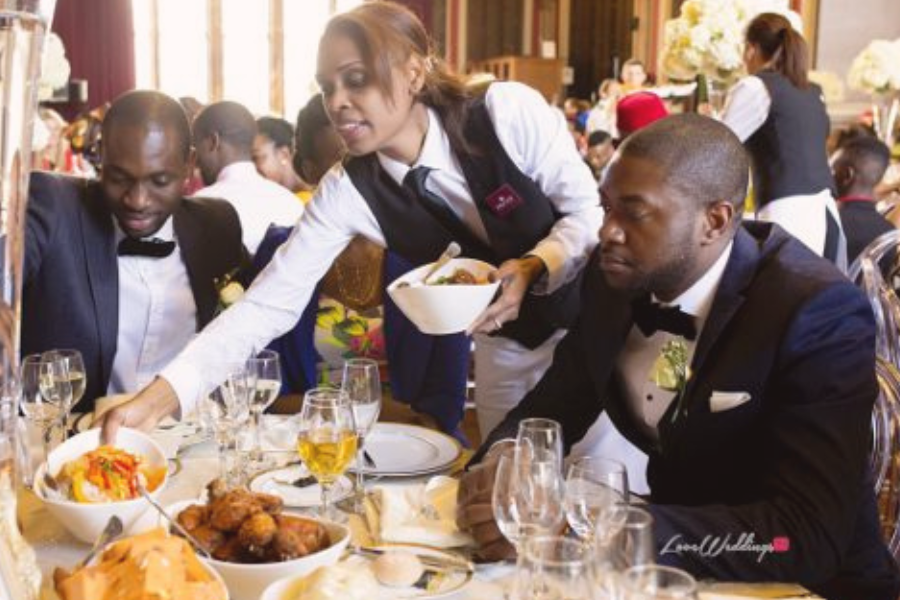
Although cash gifting is common in Nigeria too, it is not a necessity for food entitlement, however, one thing both cultures still share in common (whether much talked about or not) is that you are expected to bring a gift for the couples and the quality of the gift you give them shows how you regard them and most probably what you will get from them when it's your turn.
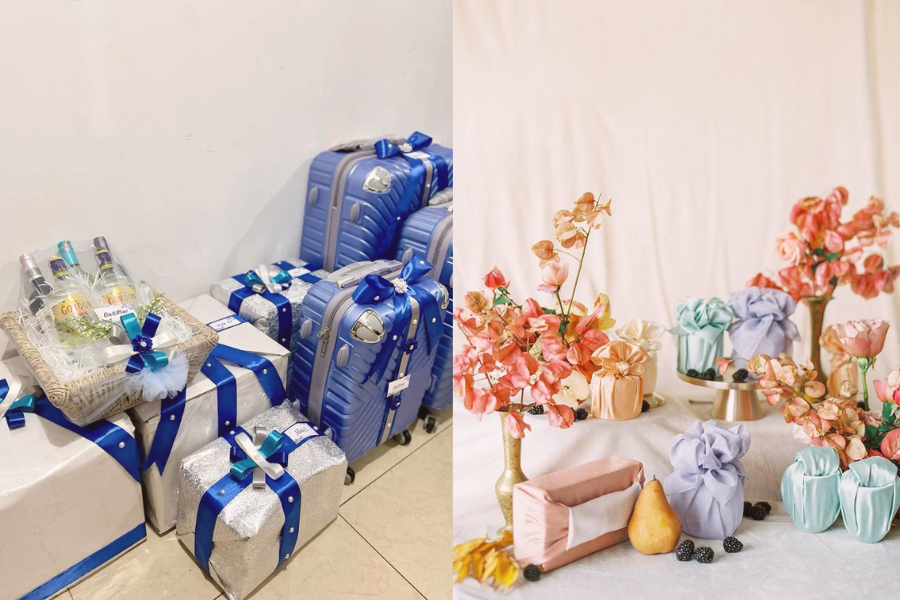
Also, while both cultures require the groom to pay the dowry and split the wedding bills between both families, the Korean culture mostly requires the groom to provide a home for his bride, while the bride’s family is expected to furnish it. In Nigeria, while the bride and her family may decide to help in this aspect, the sole responsibility falls on the man who is regarded as the head and provider of the home.
Finally, although both cultures believe in celebration, trust me when I say the Nigerian tradition can be extra, and I mean in a good way. Compared to the Nigerian style of celebration, the Korean one will be considered minimal. (If you are Nigerian, you know what I mean).
Burial Culture
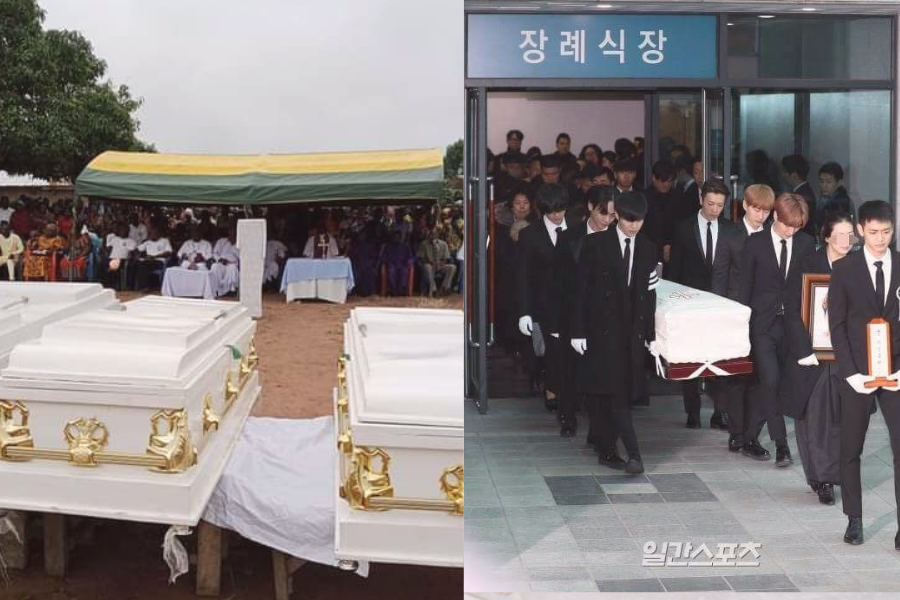
Korean and Nigerian burial cultures are quite similar in some ways, which include a period of mourning, feasting, compulsorily wearing black cloth during the period of mourning, and so on. However, while Koreans use what is called a burial hall to see off their deceased and receive friends, Nigerians do that at their residences. Speaking of food, Koreans offer guests food at the burial hall regardless of the deceased's age but Nigerians consider the death of a young person a bad omen that may cause a recurrence and they make instant arrangements to get the person buried, however, the death of an aged person will not go without being celebrated like a festival because they consider it a joyous thing to be able to see off their aged ones.
Condolence money is also a compulsory thing in Korea, and you must have it with you to support the family of the deceased while visiting the burial hall but Nigerians don’t see condolence money as a compulsory thing. Still, it is considered good manners and a form of good regard when given. Most Nigerians will probably put the body of their deceased in a morgue and retrieve it when they are ready for the burial (after the mourning period), but Koreans will rather bury their deceased immediately unless in special cases (a need for an autopsy or something else).
Although there are similarities and differences in both cultures, clearly both cultures are distinct and peculiar in their own ways. Did you learn something new in this piece? Let me know what it is in the comments.
T.Sapphire 💙
T. sapphire is a writer who found her love for the Hallyu wave after watching the historical drama “Jumong.” She is mainly interested in Korean dramas and the history of Korea at large. Explore her pieces as she takes you on a journey through K-Drama recommendations and keeps you informed about the history of the Korean people.
0 Comment(s)
Related Posts
Daily Newsletter
Get all the top stories from Blogs to keep track.

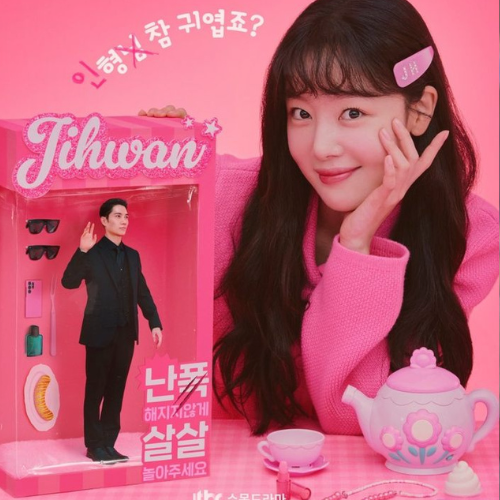



Leave a comment